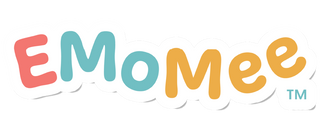
How to Choose Age-Appropriate Learning Toys for Your Toddler
Selecting suitable learning toys for toddlers is a wonderful means of promoting curiosity, imagination, and the fundamental development abilities in your child. Yet, with numerous learning toys available in the market today, how can you be sure that the ones you choose are age suitable and healthy for their development? Let's outline the steps:
Know Your Toddler's Stage of Development
Toddlers grow at an amazing pace, and each stage brings new abilities and interests. Knowledge of your child's milestones will help you choose toys appropriate for their skills.
For 1 to 2-year-olds: Toddlers explore their world through touch, sound, and motion than enhance sensory skills in this stage are the best.
For 2-year-olds: Two-year-olds will be further engaged and have fun with interactive play that builds problem-solving and coordination. Experiment with learning toys for 2 year old like shape sorters, big-piece jigsaw puzzles, and push-pull toys.
For 3-year-olds: Three-year-olds love to play complex games. Pretend play games like building bricks, pretend-to-do sets, and early-learning sets are some of the best learning toys for 3 year olds.
Emphasize Safety and Strength
Safety is of primary concern when choosing toys for toddlers. The following are some of the factors to consider:
Find non-toxic materials: The toys must be free from all toxic chemicals including BPA and phthalates.
No loose parts: Learning toys for toddlers should not have loose parts that are easily prone to choking.
Durability: Toddlers enjoy experimenting by banging, throwing, and chewing on toys, so choose durable, quality materials.
Encourage Exploration and Creativity
The greatest toys inspire imagination and curiosity. Open-ended learning toys for 2 year olds such as building blocks, art supplies, and pretend play allow toddlers to create their own worlds. For example, a stack of wooden blocks might be a plain stacking play for a 2-year-old child and a game of building-of-complex-structures for a 3-year-old child. Imaginative play leads to the development of problem-solving skills, creativity, and emotional intelligence.
Seek Out Skill-Development Opportunities
Toys provide a great arena to introduce principles about early learning in a playful setting. Depending on your toddler's age, look for toys that develop the following skills:
Fine motor skills: Play dough, lacing beads, and puzzles are one of the best learning toys for 3 year olds that help in developing dexterity.
Gross motor skills: Balance boards and ride-on toys help develop large muscle groups.
Cognitive skills: Alphabet puzzles, number games, and shape sorters provide early literacy and numeracy.
Social skills: Role-play learning toys for 2 year olds, kitchen sets, and dolls teach empathy, cooperation, and storytelling.
Keep Playtime Simple and Fun
Less is more at times. Toddlers don't always require complicated toys in order to learn and develop. Rotate toys regularly to keep things new and novel. Observe what intrigues your toddler, and take cues from them.
Choosing the right learning toys for toddlers is about understanding their developmental needs and selecting toys that offer safe, engaging, and meaningful play. Whether you’re picking learning toys for 2 year olds or searching for the best learning toys for 3 year olds, focus on toys that encourage exploration, build essential skills, and spark joy. Playtime is not just about fun – it’s about growing, learning, and creating precious memories together. Choose age appropriate toys from Emomee that will make every moment of discovery unforgettable for your child.
Frequently Asked Questions
1. What are the best learning toys for toddlers who are just learning to walk?
Push toys, activity walkers, and soft balls are great options. They promote the stimulation of movement with balancing and coordinating support.
2. How many toys should my toddler have?
Quality, not number, is most important. A few careful, multi-tasking toys are much better than a messy play area. Every few weeks or months, change toys to keep them interesting.
3. Are electronic toys useful for learning?
Electronic toys can be helpful if they are utilized in their limited capacities. Seek interactive elements such as music, lights, and simple cues that promote interaction instead of passive watching.
4. How do I know if a toy is suitable for my child's age?
Always check the recommended age range on the item as advised by the manufacturer. Watch your toddler playing to see if they use the toy or find it too complicated.
5. What should I not do when selecting learning toys?
Avoid toys with sharp points, loose small parts, or unlabelled non-toxic materials. Avoid over stimulating toys with too much light and noise.
